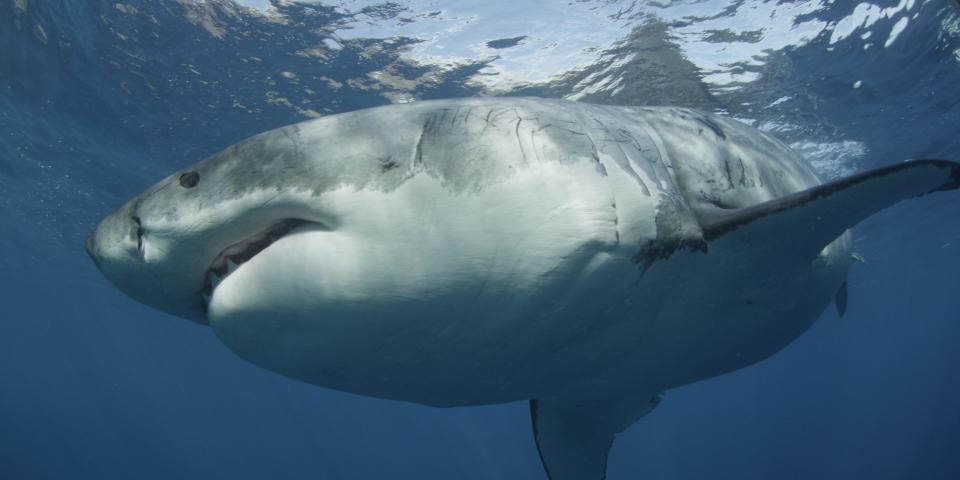Mexico indefinitely bans great white shark cage-diving at this tourist hotspot
One of "the best places in the world for white shark cage diving" will no longer be accessible. The government of Mexico permanently banned shark-related tourism activities around Isla Guadalupe, a remote volcanic island located about 160 miles off the coast of Baja, California.
In 2005, the Mexican government categorized the island and its surrounding marine area as a Biosphere Reserve.
The National Commission of Protected Natural Areas last month announced the permanent suspension of shark-watching activities, sport fishing and the use of non-scientific drones. "In the Reserve, it will not be possible to carry out the observation of white sharks for tourism purposes, to avoid altering their habitat, behavior and feeding sites, and thereby preserve and conserve the species," the new Management Program states. The ban went into effect on Jan. 10.
In 2019, about 2,800 visitors participated in some sort of shark cage tourism at Isla Guadalupe. From 2014 until 2019, the number of shark cage diving vessel operators increased from six to 10. This activity has become one of the top economic drivers in the area.

This isn't the first time the government has tried to limit shark tour operations around the island. From last May until the end of 2022, sport fishing and shark-watching were suspended so the government could gather information on "best sustainability practices."
More: Shark attacks and bites dropped again in 2022. Experts explain why.
More: Reconsider travel? Safety experts talk violence in Mexico tourist spots
Due to the indefinite ban, tour companies have been forced to shut down operations. In a Facebook post, San Diego-based MV Horizon Charters said, "Unfortunately, the closure of Guadalupe Island has left us financially tapped out," adding that it will refund any deposits to customers and has a new operator taking the company in a "new direction" by the end of the month.
Others are fighting back against the ban.
Another shark tour company, Be A Shark, posted online that "the cage diving boats have been the most practical means of monitoring, allowing constant cost-effective access to independent observers and researchers." The company said it will "negotiate with the authorities to implement policies and procedures that will ensure the continued monitoring of white sharks at this critically important location."
Why are there so many great whites around Isla Guadalupe?
The clear waters surrounding the small island are warm and flourishing with seals, bluefin tuna and other diverse marine life, making it an ideal environment for great white sharks. Over the past two decades, the great white population has increased around the island, with males returning annually and pregnant females coming every two years during the fall and winter.
What are the ethical concerns with shark-cage diving?
While shark-related activities such as cage diving can help break the stigma around great white sharks, there are some who are concerned about the ethics and impact on the sharks themselves. ome say the bait or targets used to lure sharks has changed sharks' behaviors, which can be dangerous for the shark and people. In 2018, New Zealand banned shark cage-diving activities.
Are great white sharks an endangered species?
Great whites are considered to be vulnerable but not endangered, according to the IUCN Red List of Threatened Species, due to their low reproductive potential and slow growth rate. Humans have also negatively impacted the shark population, like climate change and disruptions to their natural habitats. However, the greatest threat to great whites is being entangled in fishing nets as bycatch. There's also a history of sharks being caught purposefully as trophies.
This article originally appeared on USA TODAY: Mexico bans great white shark activities at Isla Guadalupe

